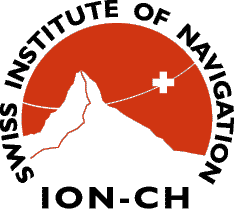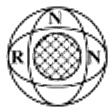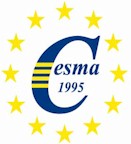INTERNATIONAL NOT FOR PROFIT ASSOCIATION
THE EUROPEAN GROUP OF INSTITUTES OF NAVIGATION
(EUGIN)
ARTICLES
Last updated: 22 FEBRUARY 2005
CHAPTER I: TITLE – OBJECTIVES – REGISTERED OFFICE – DURATION
Article 1 Title
The Association is called in English “The European Group of Institutes of Navigation.”
The European Group of Institutes of Navigation shall be known under the abbreviation EUGIN.
It is ruled by Title III of the Belgian Law of 27 June 1921 on not-for-profit associations, not-for-profit international associations and foundations, and by the present articles.
Article 2 Objectives
EUGIN is a non-profit-making international Association. Its objectives are:
- To initiate and support actions assisting in the development of pan European policies and strategies in the general fields of navigation and traffic management;
- To participate in study works initiated by the European authorities;
- To foster co-operation and information exchange between its Members and any competent authorities or organisations active in the general fields of navigation and traffic management;
- To provide information in its field of expertise by organising conferences and symposia, publishing papers; and participating in various media methods of data dissemination;
- To undertake other actions which are related to EUGIN’s objectives and which should assist in their realisation.
Article 3 Registered Office
EUGIN’s Registered Office is c/o European Maritime Pilots’ Association, St. Aldegondiskaai 36-38, B-2000 Antwerp, Belgium.
It may be transferred to any other place in Belgium by decision of the Council. Such a decision must be published within 30 days in the annexes of the Moniteur belge.
Should its Council so decide, EUGIN may establish administrative offices, branches or agencies in any country in which it operates.
Article 4 Duration
The duration of EUGIN shall be unlimited unless it is terminated by decision of the General Assembly.
CHAPTER II: MEMBERSHIP
Article 5 Categories of Members
The EUGIN members are individual and legal entities constituted according to the laws and customs of their country of origin.
EUGIN shall have three categories of Members:
– Executive Members
Any European Institute of Navigation.
– Honorary Members
Distinguished persons or legal entities in one of the fields listed under Article 2 above, upon whom EUGIN sees fit to confer an honorary distinction.
– Individuals, who are members of a member Institute, are represented on EUGIN by their parent Institute. They can be co-opted or associated directly with specific EUGIN activities.
Article 6 Rights of Members
Executive Members possess full voting rights and take responsibility to specify and organise the actions and operations of EUGIN in accordance with its current statutes.
Honorary Members do not possess voting rights and cannot specify or organise the actions and the management of EUGIN.
Individuals are represented by their parent Institute. Individuals co-opted onto EUGIN bodies or associated directly with specific EUGIN activities do not possess voting rights.
Article 7 Admission to Membership
– The decision as to whether an Institute of Navigation is eligible for Membership will be made by EUGIN General Assembly on the recommendation of the EUGIN Council. Rejection will only occur in exceptional circumstances.
– Any Institute of Navigation, declared eligible for Membership by the General Assembly, shall become a Member on payment of the initial admission fee.
– Persons or organisations eligible for Honorary Membership shall become Members on receipt of a letter of Appointment, following their acceptance by the General Assembly.
Article 8 Resignation
Members of any category may resign from the Association by providing at least three months notice in writing to the Council.
Agreement of the Council will not be given while there are outstanding liabilities.
Resignation shall not absolve a Member from its legal liabilities.
Article 9 Expulsion
The Council may expel any Member from EUGIN, after giving him the opportunity to present his defence, in writing and verbally, for failure to observe the Articles, or the By-laws established for their execution by the Council.
The Council will inform the Member of his failure by registered letter and will allow him a period of 30 days to rectify the problem.
The Member under threat of expulsion may appeal to the next General Assembly.
Article 10 Consequences of Resignation and Expulsion
In the event of loss of Membership (either by resignation or expulsion), the Member will have no further claim on the assets of EUGIN.
Article 11 Obligations of Members
Members commit themselves to make their best contribution to the development and the realisation of the objectives of EUGIN.
They must respect the Articles of Association, any By-laws and the decisions of the Council and the General Assembly.
CHAPTER III: FINANCIAL RESOURCES
Article 12 Financial Principles
EUGIN will be run on a non-profit and low financial risk basis and will not incur debt without the prior approval of the Council.
Article 13 Financial Resources
The financial resources of EUGIN consist of:
– The initial admission fee payable by the Members Institutes;
– An annual membership fee;
– Settlements of grants and donations which the law allows;
– Income from the goods or assets of EUGIN;
– Income from other activities authorised by Council.
Article 14 Admission Fee
The amounts of the admission fee and of the annual membership fee are determined by the Council and payable in Euros.
Article 15 Exceptional Fees
By decision of the properly constituted General Assembly, an exceptional fee may be charged on all Executive Members. Such a decision must be made unanimously.
CHAPTER IV: THE COUNCIL
Article 16 Composition
EUGIN is administered by a Council whose Members consist of the currently serving Presidents of each Executive Member Institute.
The number of Councillors may never be below 3.
Additionally, the Council may elect one additional honorary member for three years. The term is renewable.
Council Members will elect a Chairman from amongst their number. The maximum term of office for the Chairman shall be three years.
Article 17 Delegation
Any Councillor unable to attend a Council meeting may either delegate his powers to another Councillor or appoint a representative to vote on his behalf.
In such case the Chairman must be informed of any such delegation before any meeting of the Council at which this delegation will occur.
No Councillor may represent more than one other Councillor at any meeting of the Council.
The President of an Executive Member may permanently delegate his powers to another representative of his Institute.
Article 18 Powers
The Council has over-riding powers and responsibility for the administration, management and financial affairs of EUGIN except for those powers that are the responsibility of the General Assembly. Councillors are jointly responsible for the decision of Council, including legal liability.
EUGIN may be represented with respect to third parties by the Chairman of the Council or jointly by two Councillors.
All legal action in prosecution or in defence authorised by the Council may be undertaken in the name.
CHAPTER V: TECHNICAL COMMITTEE – EXECUTIVE SECRETARY
Article 22 Technical Committee
- Constitution
The Technical Committee will normally consist of the Technical Directors (or their equivalents) of each Member Institute. Exceptionally, a Member Institute may appoint another suitably qualified person provided that the Council agrees.
The Technical Committee has no formal decision powers.
- Responsibilities
– The implementation of the decisions of the Council in respect of the technical business of EUGIN;
– The preparation of tasks and associated submissions;
– The management of tasks.
- The Committee will elect a Chairman from amongst its Members.
- The Chairman of the Technical Committee shall be entitled ex officio to attend all meetings of the Council with the exception of those at which his personal case is discussed. He does not have a vote on Council.
Article 23 Day-to-day management and Executive Secretary
As long as EUGIN activity does not justify the appointment of an Executive Secretary, the day-to-day management will be the responsibility of the Chairman who can delegate tasks to voluntary member Institutes, keeping all other members of the Council informed. If at a point in time the activities of EUGIN require more management work, in particular that involving closer and more detailed financial control than can reasonably be handled by the volunteers, the Council will appoint an Executive Secretary and transfer management responsibility to him. This Executive Secretary may not necessarily be an existing Member of any EUGIN committee and the post may be part-time or full-time, remunerated accordingly.
Article 24 Duties of Executive Secretary
He will be responsible for the correct and professional administration of EUGIN on a day-to-day basis.
He will be responsible for all duties given to him by the Council.
He will represent EUGIN in day-to-day matters, subject to the wishes of the Council.
He will be responsible for all communications between EUGIN and bodies wishing to use its expertise.
He will communicate any enquiries from European institutions to the Member Institutes via their Presidents. For this purpose the Presidents may delegate their responsibilities to another Officer in their organisation.
He shall attend and administratively support meetings of the Council, unless otherwise requested by the Council.
CHAPTER VI: GENERAL ASSEMBLY
Article 25 Composition and Meetings
The General Assembly consists of all the Member Institutes of the Association.
Each Member Institute may be represented at the meeting by a maximum of 3 delegates whose names will be communicated to the Council at least 5 days before the date of the assembly. Each delegate of a Member Institute may also be represented by a delegate of another Member Institute who carries a special proxy. Each delegate of a Member Institute may only carry one proxy.
Honorary Members are invited to attend the General Assembly.
The General Assembly will meet annually in Brussels or in any other place within the territory of a European member country. The time and place of the meeting are determined by the Council.
The Council must call an extraordinary meeting of the General Assembly if it receives a written request stating the reason for the demand, and is supported by not less than one-third of the Members.
Notification of a meeting of the General Assembly will be sent by conventional or electronic mail at least 28 days in advance and will include the agenda of the meeting.
Article 26 Procedure
The General Assembly is presided over by the Chairman of the Council assisted by tellers nominated by the Assembly.
The minutes of General Assembly will be signed by the Chairman, the tellers and representatives of the Members of EUGIN who wish to do so.
Copies of the minutes and extracts for delivery to third parties will be signed by the Chairman of the Council. The Assembly’s minutes are recorded in a register that is kept in the office of the Chairman’s member institute.
Article 27 Powers
The General Assembly has the following powers:
– Review the activity report presented by Council;
– Approve new applications for Membership recommended by the Council;
– Approve the annual accounts, yearly budgets and business plans;
– Decide upon the modification of the Articles of Association and the dissolution of the Association;
– Decide on annual and/or exceptional fees
– Decide on annual and/or exceptional fees;
– Appoint Liquidators, decide on their powers and their emoluments and determine the method of liquidations.
Article 28 Voting
The General Assembly is properly constituted if at least two-thirds of the Members are present or duly represented.
Decisions are taken by a two-thirds majority of the vote of those present or represented except for any provision in the present Articles to the contrary.
Each Executive Member Institute has one vote.
The Honorary Members may assist in the conduct of the General Assembly and have advisory rights but they have no vote.
Should the General Assembly have to discuss the dissolution of the Association or any amendment of the Articles of Associations, then the following rules apply:
- The Assembly only considers matters proposed by the Council;
- It may not properly deliberate unless:
- the matters to be discussed have been stated fully in the calling notice for the meeting, and
- all Executive Members are represented at the meeting;
If this is not satisfied, a new meeting must be called which may proceed no matter the number represented thereat;
- Unanimous vote must be obtained:
The amendments to the Articles of Association are presented for approval to the Ministry of Justice of Belgium and published in the Annexes to Le Moniteur belge.
Article 29 Dissolution of the Association
The General Assembly may decide to dissolve the Association. The Assets after liquidation shall be shared between the member institutes in proportion to the contribution they afforded the Association for the latest four years, provided the refund is not greater than that contribution. The excess, if any, shall be attributed to the non-profit body designated by the General Assembly, or, in absence of a decision, to the International Red Cross.
CHAPTER VII: ACCOUNTS
Article 30 Approval and Release of Accounts
The financial year starts on January 1st and ends on December 31st of each year.
Council approval is required for the following before submission to the General Assembly:
– Accounts;
– Annual budget;
– General Business Plans;
– Investment policy of EUGIN funds.
Approval by the Council Chairman and Treasurer is also required for all tenders and proposals within the general business plans above. Items outside the approved budget or business plans require prior approval from Council.
The Association’s yearly accounts will be transmitted to the Belgian Service Public Federal Justice.
Article 31 Law
This Association is formed under the laws provided by Title III of the Belgian Law of 27 June 1921, concerning not-for-profit associations, not-for-profit international associations and foundations. Anything which is not provided for by these Articles and in particular the publications made in the annexes of Le Moniteur belge are to be settled according to the Belgian Law.
Article 32 Arbitration
All disputes concerning the Association which cannot be settled by discussion and mutual agreement shall be finally settled by three or more Arbitrators to be appointed in accordance with the Rules of Conciliation and Arbitration of the International Chamber of Commerce in effect at the time.
Such arbitration shall be conducted in English.













